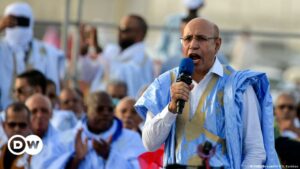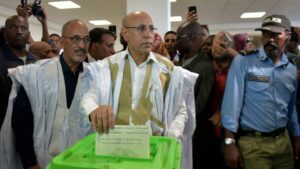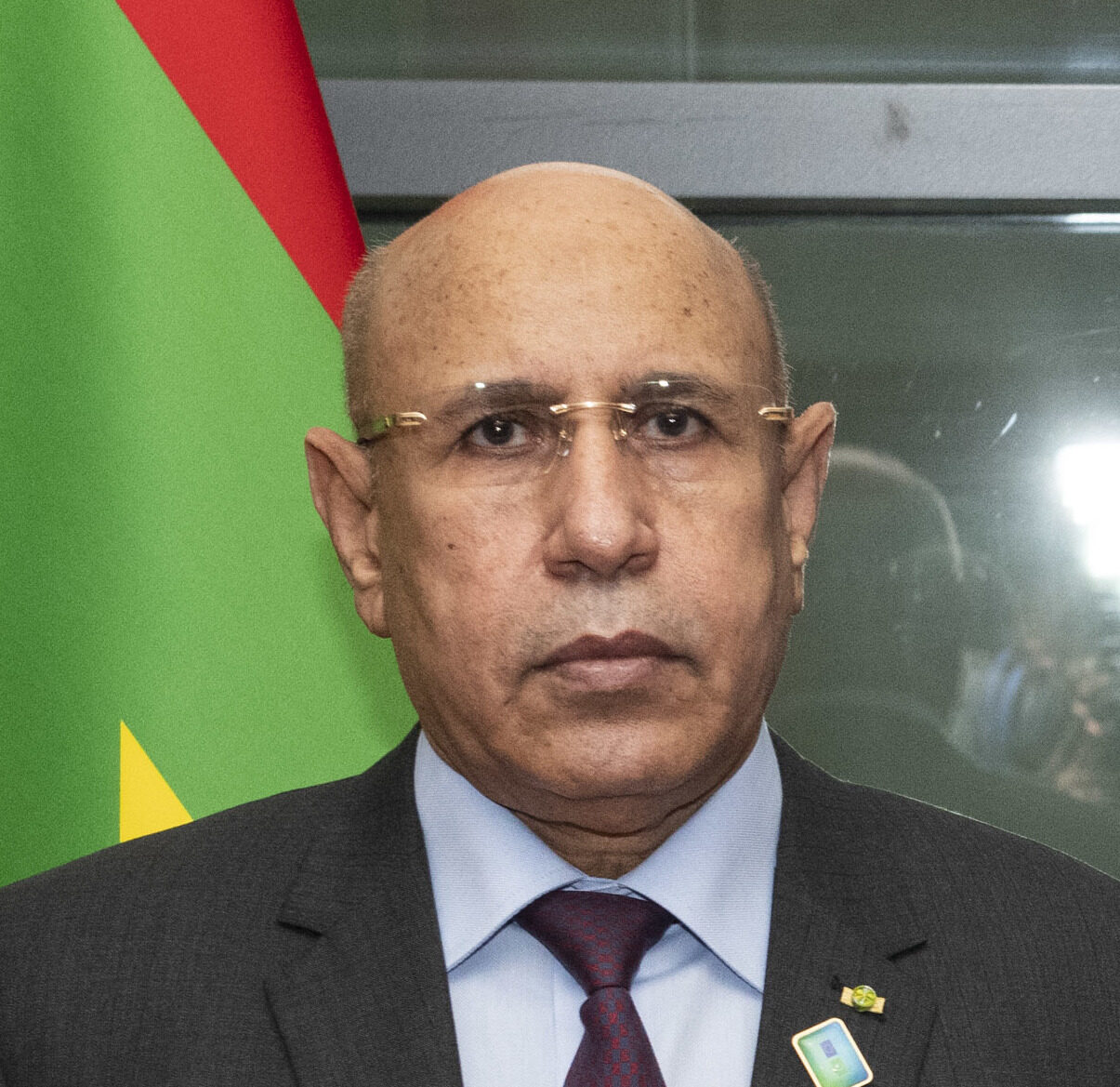Mohamed Ould Ghazouani, President of the Islamic Republic of Mauritania, was born Mohamed Ould Cheikh Mohamed Ahmed Ould Ghazouani on December 31, 1956, in Boumdeid in the Assaba Region of Mauritania. The names of his father and mother are not available but his father was a spiritual leader of the Maraboutic tribe, Ideiboussat. While in elementary school, Ghazouani memorized the entire Quran.

Ghazouani married Mariam Mint Mohamed Vadel Ould Dah, a physician, in 2004. They are the parents of five children.
In 2005, Ghazouani became a member of the military council and as such he was one of the architects of the coup that ousted former President Maaouya Ould Sid’Ahmed Taya. In 2008, Ghazouani served as Chief of Staff of the Armed Forces of Mauritania. He was an active participant in a second military coup in 2012 that overthrew the country’s first democratically elected civilian president, Sidi Ould Cheikh Abdallah.
In 2012, Ghazouani was named interim head of state when his political ally, President Mohamed Ould Abdel Aziz, who came to power through the military coup, was mistakenly shot by an army patrol. In 2018, Ghazouani left his position as head of state and Chief of Staff of the Armed Forces.
The following year, in 2019, Ghazouani became the Defense Minister of Mauritania. As Defense Minister, he became a candidate for President, was elected with 52.01% of the votes cast, and on August 1, sworn in as the 9th President of Mauritania.

Ghazouani’s campaign platform included creating a favorable political climate, building strong institutions, empowering women, making the capital, Nouakchott, a city that meets reasonable standards of security, reforms in education and health care issues, and intensifying the fight against corruption.
In 2022, Ghazouani contracted COVID-19. Although he survived, the World Health Organization reported 13,642 cases and 324 deaths in a country of 4.8 million people. President Mohamed Ould Ghazouani remains in power and his administration continues to focus on creating and implementing economic strategies that bring prosperity to his nation, monitoring social and regional inequalities in the country and especially between the rural areas and the cities, and further developing an effective independent judicial system.

